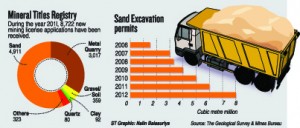
Building boom endangers sand and gravel resources
Sri Lanka’s lawmakers this week approved a proper mechanism to mine sand, gravel, and rocks from lands belonging to the Mahaweli Authority and Forest Department where applicable. The decision aims to ease the demand for these and other building materials.
A cabinet paper states that only lands that are not declared as ‘protected areas’ will be targeted and that mining be done only after an environmental assessment. But environmentalists say the remaining forests should not be vandalized.
The Environment Conservation Trust’s Sajeewa Chamikara says that as soon as the war ended, forests in the north were mined for soil, gravel, and rocks to provide materials for infrastructure such as roads. “This eventually led to a severe water shortage in some of the northern areas and the new approval of mining in forest areas could also lead to such a situation,” he warns.
Environmentalist Nayanaka Ranwella, points out the situation is worse in the Gampaha District in the Western Province. “There are a lot of mining activities as these building materials could be easily transported to Colombo due to the proximity. But these mines already contribute to water shortages in the area,” he said. He also says there are no licences for 80 per cent of the excavations. Even those who have licences excavate more than what is allowed.
Geological Survey and Mines Bureau Acting Director General, Sajjana De Silva, said the agency had cancelled more than 100 licences citing violation of conditions during the past few years. He said there are a number of unapproved excavations and that support from other agencies is needed.
He said the daily volumes needed to fill the central expressway exceeds the amount of gravel generated by all licencees.But as controls are tightened, it is creating shortages of building materials.Projects such as expressways and numerous high-rises in Colombo and elsewhere require massive amounts of natural materials.Experts says there is a construction boom in Sri Lanka.
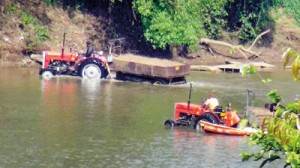
“Finding sand and other materials is the worst headache for contractors,” says the Chairman of National Construction Association of Sri Lanka, Athula Galagoda. He also says that the quality of the sand is poor.
Road Development Authority Chairman, Nihal Suriarachchi also says sourcing gravel for filling purposes is diffcult and it could affect expressway projects.
Sajeewa Chamikara of the Environment Conservation Trust suggests estimating the materials requirements and identifying ways of sourcing before projects are started.
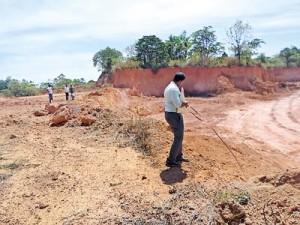
GSMB’s former chairman, Dr. N. P. Wijayananda, points out that most of the problems regarding gravel occur because the constructors or suppliers of soil and other material are looking for sources closer to construction sites. It will be cheaper to transport, but will carry a huge environmental cost.
“Find a feasible source of gravel in a central place, do the mining scientifically and transport to the construction site. Yes, the supplier will have to spend more for transport, but environmental damage will be much less,” Dr Wijayananda suggests.
The SundayTimes also asked Dr Wijayananda, what could be a possible solution. He suggests a three-pronged approach – opening up new deposits, using railways to reduce transport costs, and promote the use of sea sand.
He recalled that earlier the sand deposits at Manampitiya were opened up to meet urgent needs.
“The flow of the Mahaweli river causes sand to accumulate around the Manampitiya Bridge in Polonnaruwa, creating a flood plain around it. If we do not use this sand, they will anyway be washed to the sea. The next monsoon will replenish the sand deposits, so sand excavation in this area could be done sustainably,” Dr Wijayananda assures.
He reveals there are other sand deposits between Manampitiya and Trincomalee. But there are no proper access roads and it is not easy to transport from the sites.
“All these excavations have to be done under strict guidelines without deepening the river unnecessarily and without affecting the banks,” Dr Wijayananda said.
He also said that during his tenure at the Mines Bureau discussions were held with the railways on transporting materials, but that it was more expensive. “But if the government is willing, it can amend the rules facilitating cheaper sea sand transport by rail. I’m sure the cost of sand can be reduced by 40 percent,” he said.
Sea sand needs to be properly cleaned. “Europe extensively use sea sand for construction. We need to mechanically clean the sea sand and set standards of minimum salinity levels.”
Source – 26/03/2017, The Sunday Times , See more at – http://www.sundaytimes.lk/170326/news/building-boom-endangers-sand-and-gravel-resources-234121.html
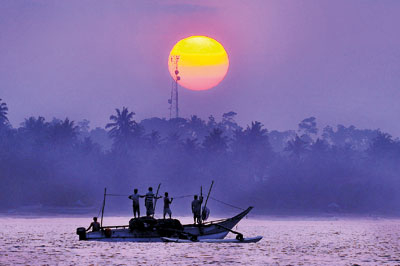
Earth hour: Let’s save our beautiful planet
At 8.30 pm yesterday, in Sri Lanka and worldwide, millions of people were called upon to switch off their lights to mark earth hour in a global celebration of their commitment to protect our planet, which is still beautiful though facing a possible catastrophe because of pollution and global warming. One of our planet’s most beautiful scenes is the sunrise and this picture taken by our photojournalist Amila Gamage from a boat at Mirissa shows this beauty which no painting can portray.
Source 26/03/2017,The Sunday Times, See more at – http://www.sundaytimes.lk/170326/news/earth-hour-lets-save-our-beautiful-planet-234239.html
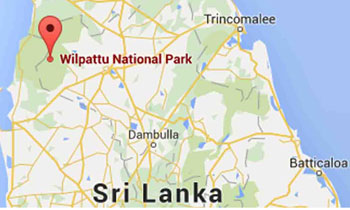
All forest reserves in Wilpattu North merged into one.
All the forest reserves belonging to the Department of Forest Conservation, located in the northern part of Wilpattu National Park, have been declared as a single forest reserve. Accordingly, Mavillu, Weppal, Karadikkudi, Marichchakatti, Withthikulam and Periyamuruppu have been combined in terms of the Forest conservation Ordinance and President Maithripala Sirisena signed the Gazette Notification today during his visit to Moscow. The President has advised to take necessary steps to preserve the adjoining forest reserves as well.
Source – 24/03/2017,Daily mirror, See more at: http://www.dailymirror.lk/article/All-forest-reserves-in-Wilpattu-North-merged-into-one-126184.html#sthash.5z70YGul.dpuf
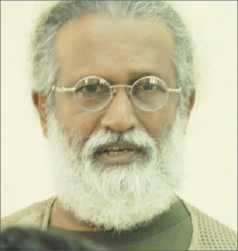
The Widely Debated Land Grabbing At Wilpattu
by Ifham Nizam
Expressing his candid views to The Sunday Leader about the widely discussed/ debated land grabbing at the one of the country’s leading national parks, he added: “ My first issue is what is the Wilpattu issue? Because this issue is outside the Wilpattu National Park, when we use a common word which covers a specific area and use that for an area outside the Wilpattu National Park I have a problem.
“The overall issue should be divided into sectors and then should be clarified,” he said. Expressing his point of view, he said fundamentally there are two parts of the issue, one part is that people have been displaced from the area and they have come back to resettle.
“Therefore, we have to recognise the certain areas in which the problem hasn’t been solved and work on those areas or else the problem will be there forever, that means under this sector if a person is displaced from a particular area, we should find an alternative for this issue somehow.”
Different issue
The other part is a completely different issue, there again we have to have a collective agreement anywhere in the country, when the population grows, what do we do? For this, sadly there is no plan in our country, so I can say that if the population is going to be static it’s fine, but if it grows? What do we do?
The unfortunate issue is that, from the day that this problem prevailed, individuals have found opportunities which aren’t helping any plans except the fact that they find alternate settlement areas, The second issue that we know officially there had been sanctions and resettlement granted, he added.
The major issue isn’t any of these, it came to light a couple of weeks ago after the end of the argument, somebody very clearly showed in the places where people have settled legally or illegally, let’s take the legal side first, they have done more than what they have been permitted to do.
Why should that not be penalised?
That is the issue. Secondly, if there are illegal settlements other than those that have been permitted, that also should also not be permitted, he stressed.
“So our battle shouldn’t be with what is known but with the ‘unknown,’ which has been clouded by using the term Wilpattu. Everybody is talking about Wilpattu National Park, saying that someone is encroaching Wilpattu National Park but that person comes and says, ‘show me any evidence that I have done this, I have not done anything.”
He added: “So in the process of using the wrong words in the wrong places, we have allowed something to happen which we could have been solved, in some way or the other, if not for the politics contained, why I said if not for politics is that, this is to me, is a 99.9 per cent political scenario. In that situation officers or even the public are finding themselves in a very difficult situation.
How do we resolve this?
“This is a very critical thing, I can see there may not be a solution but, politics is needed to definitely build a solution, but I don’t see that. I see a problem. Ofcourse we don’t have a really good plan for the expanding population of this country and in a country in which we have 26 per cent of land collected, and we don’t want an inch of it to be reduced.”
Accommodating increasing population
How do we accommodate the increasing population in this static framework because the land doesn’t multiply, this is to me, a very good stimulus, for the people , the planning sessions, at the political level, at the administrative level to recognise that this is not going to be the only place this is going to happen.
This is going to multiply itself and vigorously, as we go into the future because I can see these strategic planning processes that some of the institutions are bringing out are talking bringing 1000 acres for an industrial state, 7000 acres for a city development.
“I think this is high time we use this as a good example to ensure nothing like this will ever happen again and for that purpose we need to sit down to plan precisely how villages will expand. To me, this isn’t a new phenomenon in the sense of not the way it has happened.
Source 24/03/2017, The Sunday Leader,See more at – http://www.thesundayleader.lk/2017/02/26/the-widely-debated-land-grabbing-at-wilpattu/
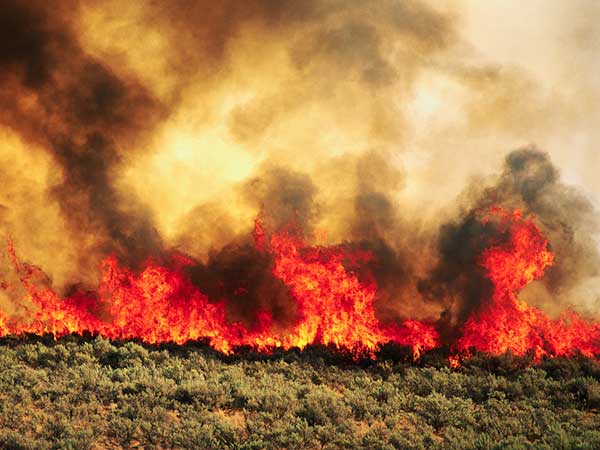
Meethotamulla garbage dump on fire
By Shaahidah Riza and
Rathindra Kuruwita
A fire was reported at the Meethotamulla garbage dump and the Fire Brigade had been deployed to douse the blaze, the Police Media Unit said. Initial attempts to douse the fire failed as the firemen were unable to reach the affected area. However, the fire trucks were re-routed and later reached the area where the fire was blazing.
“Backhoes are also being used to create a buffer zone to prevent the fire from spreading. The residents closest to the fire must have been asked to evacuate,” a spokesman for the Police said.
Although there was no information about the severity of the fire, a large scale fire at a garbage dump can emanate toxic fumes.
In 2016 Several schools in Badulla were temporarily closed when students had to be hospitalized after inhaling smoke that emanated from a garbage dump at Badulupitiya.
Source -22/03/2017, Ceylon Today, See more at – http://www.ceylontoday.lk/article20170101CT20170331.php?id=4524

Six including foreigners held for snapping marine mammals
Following a tip-off, six persons including four foreigners who dived in ‘Thalaramba’ coastal area in North to take photographs of marine animals without due approval were arrested yesterday, Navy said.
During the arrest, a fiber glass dinghy, an underwater camera, a digital camera, 5 pairs of diving fins and 6 diving masks were taken into naval custody. The arrested persons along with their belongings were handed over to the officials of the Department of Wildlife Conservation for onward action.
Source – 23/03/2017, Times Online, See more at – http://www.sundaytimes.lk/article/1018940/six-including-foreigners-held-for-snapping-marine-mammals
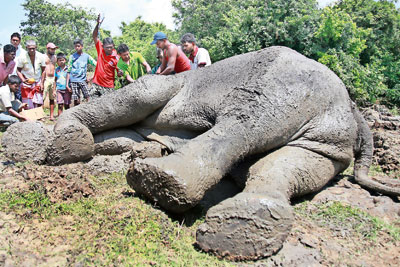
Injured tusker gets treatment, food
Wildlife officials were seen working their fingers to the bone to save an injured tusker lying down helplessly by the Adiyakadawala tank in Kottukachchiya. Dr. Isuru Hewa Kottage said the tusker’s health condition was serious but they were doing everything they can to save him. Meanwhile, people were seen visiting the location carrying fruits to feed the helpless tusker. Pix by Hiran Priyankara Jayasinghe.
Source – 21/03/2017, dailymirrorSee more at: http://www.dailymirror.lk/article/Injured-tusker-gets-treatment-food–125893.html#sthash.JKoXxwcL.dpuf
100 MW Korean solar power project hangs in balance
Emphasising the need of adopting proper tender procedure,Sri Lanka’s Power and Energy Ministry appears to be delaying or dropping a Korean Company’s offer to set up a 100 MW Solar Power Plant, to be done on a Turnkey Basis and handed over to the government which comes with project funding, Korean investors of the project claimed.
If commissioned, it will be one of the largest in South Asia Solar Power Plant; these investors said adding that the projects of this magnitude could be approved by the Cabinet with the consent of the Committee on Economic Management (CCEM).
When contacted, Secretary to the Ministry Dr. B.M.S Batagoda said the the government has taken a policy decision to call tenders for all solar power projects and no unsolicited bids will be entertained.
Normal procedure should be followed even if the project brings many benefits for the country, he said adding that the company will have to wait for another four months to apply for the tender for 100 MW solar power projects. The MOA Technology Company Ltd of Korea which has made the proposal jointly with world renowned Hyundai will be investing US$ 250 million including the financial cost of project for the solar power project on Turnkey basis (designed, supplied, built, installed fully complete and ready to operate).
The term Turnkey implies that the end user just has to turn a key and start generating power. The Korean company’s offer comes with no capital outlay for the government till such time the plant is operational and generating income, MOA Technology Company official revealed. On commissioning the plant, the government can entrust operations to a nominated agency such as the CEB or the Renewable Energy Authority. The power generated is to be contributed to the main grid at rates to be determined by the government, he said.
The proposal to government provides for a payback period of 15 years from date of commissioning plant and generating income. It was emphasized that the income generated is sufficient to payback cost of plant, meet operational cost and to have a surplus, he claimed
Apart from providing the land and main grid connection, there was no other contribution to be made by the government, MOA Technology company official told Business Times .
As outlined in their proposal, it is noted that the government will make a profit of over US$200 million over 25 years after meeting project and operational costs without any investment other than providing the required land..
The funding for the project had been lined up by the Korean Company after their initial visits about 6 months ago. However if project does not get underway before end March 2017, the funding will have to be re-negotiated by the Company and the commencement of the project could be further delayed, company official said.
The Company which has made the proposal has done similar projects in countries other than South Korea. If Sri Lanka fails to commence negotiations towards finalisation of project promptly, MOA Technologies will have to rearrange project funding. With no assurances if rearranging of funds will be a possibility, the Solar Power project hangs in balance, he claimed.
Since August 2016 the Korean experts have visited Sri Lanka a few times to carry out required studies etc. The proposal has been made to the government.
The Korean Company did indicate that they have the blessings of their government and it is been considered as a follow up step to the pilot project done by the Koreans in Hambantota of which the cost had been borne by the Korean government.
Source 19/03/2017, The Sunday Times, See more at – http://www.sundaytimes.lk/170319/business-times/100-mw-korean-solar-power-project-hangs-in-balance-232843.html
Using technology as a tool to create awareness on sustainability among corporates
The World Bank is currently looking at the possibilities of funding the plantations in a bid to salvage what is left of it.
This was highlighted at the AGM held recently in Colombo of an ex-planters grouping titled The Mascots by its President Devaka Wickramasuriya who stated that the World Bank had favourably looked at assisting the plantations.
However, the World Bank official in charge of this aspect, Ulrich Schmidt – Programme Leader sustainability and Resilience World Bank for Sri Lanka and the Maldives, when contacted by the Business Times said, that it was too early to comment.
The Mascots had prepared a report on the plantation industry, Mr. Wickramasuriya explained which provided suggestions on how the industry could be resurrected.
The sub-committee appointed to carry out the research on this subject submitted its report to the relevant government authorities and the ministry in addition to a copy being forwarded to the World Bank.
The World Bank funding is expected to be a capital infusion to overcome the current crisis on the plantations that have been faced with a number of issues like falling prices in the recent past but which picked up only due to the shortage of supply in the global market for tea.
Membership of the Mascots stands at 72 resident members, 41 overseas members and 12 associate members who are in fact the wives of colleagues.
The current General Committee comprises Sunil Wickramasinghe as Vice President, Hemannath Wickremesooriya as Treasurer with Randy McLeod, Winston Rupasinghe, Gnana Samaratunga and Harin de Costa functioning as members together with Tilak de Zoysa, Manik Pereira and Sarath Sirisena as Trustees.
source 19/03/2017, The Sunday Times, See more at – http://www.sundaytimes.lk/170319/business-times/world-bank-in-favour-of-salvaging-tea-plantations-232778.html

Blue Mountain Group to reforest 125 acres at Wilpattu
By Quintus Perera
he city of Colombo which is fast becoming a concrete jungle is to be greened after clearing a few constraints.
A media briefing was held in Colombo this week to announce the efforts made by Blue Mountain Group (BMG) in collaboration with the Forest Department to reforest a 125-acre land in Wilpattu in the Puttalam district. This is a part of their campaign of ‘Greening Sri Lanka’.
Dr. Hiran Hettiarachchi, Group Chairman, BMG said as a matter of principle, they undertook to preserve nature, pointed out that countries like, Singapore, the US and China are turning out to be concrete jungles and the environment of those countries are polluted, also pointing out that most parts of China are covered with a layer of fumes leading to such respiratory disorders, like coughing.
He said that Sri Lanka is a developed country in the sense where the people are happy that they can breathe fresh air, freely and to preserve that condition BMG is contributing its share to the ‘Greening Sri Lanka’ initiative.
Dr. Hettiarachchi told the Business Times that while it is necessary to green the city of Colombo there are a few constraints that are yet difficult to penetrate.
He said that in Colombo land prices are soaring to the extent where the going price of an acre of land in Colombo is around Rs. 1 billion and they are finding difficult to convince some members of the Government to apportion some land to preserve nature. He was pointed out that the lush greenery that was there in Colombo in the past has now diminished.
At the briefing, he said that reforesting of this 125 acres is only the beginning of their reforestation efforts and in all their land development projects they separate 10 perches for the nature, for the iguanas, wild hares and other animals as a place to live as they are thrown out of their habitat due to development.
He said that they have been undertaking this type of nature preserving projects without publicity, indicating however that BMG thought of holding a media briefing so that other large scale corporates could take their example and follow suit.
Source -19/03/2017, The Sunday Times, See more at -http://www.sundaytimes.lk/170319/business-times/blue-mountain-group-to-reforest-125-acres-at-wilpattu-232817.html













